A quarter think the n-word is sometimes acceptable
- Published
How offended are we over race?
Warning: people may find some of the words used in this report offensive
More than a quarter (27%) of young people think it's acceptable to use the n-word in some circumstances.
Newsbeat asked YouGov to survey, external 3,000 18 to 29-year-olds about words and phrases used around race, sexuality and sexism.
The survey showed that nearly two thirds (66%) thought the n-word was not acceptable to be used in any circumstances.
Meanwhile 7% said they didn't know.
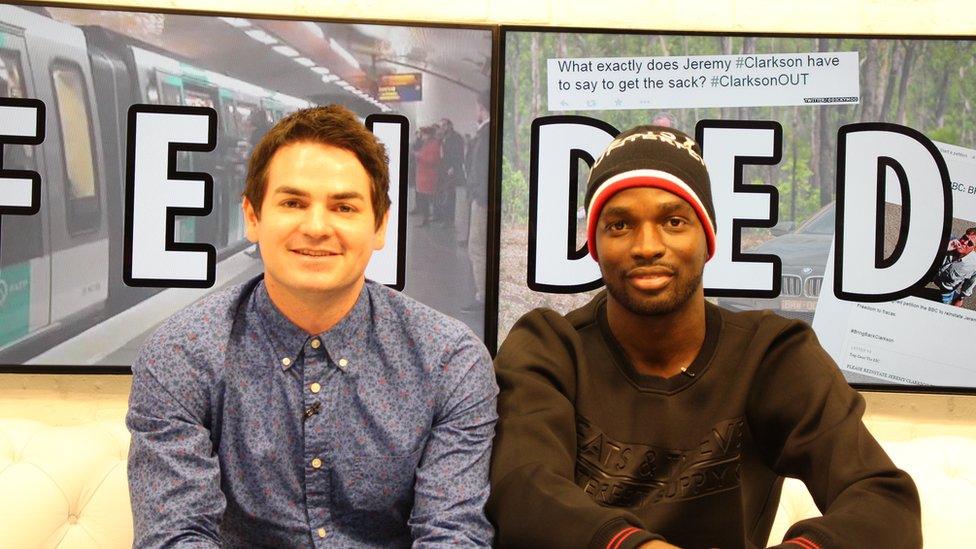
Newsbeat reporter Rick Kelsey interviewed Swiss from So Solid
The majority of young people surveyed, 53%, also believed the term "coloured" was not an offensive term.
The survey is part of a Newsbeat investigation into what people find offensive.
We hear daily about how people are offended by something they've seen on the news or read about on social media, so we wanted to find out where people drew the line.
Fifty years ago the Race Relations Act banned discrimination on the grounds of colour, race or ethnicity.
But since then the words people use and find offensive have changed.
We put 12 words to the audience and asked them if they used them with their friends.
Twenty-two per cent of 18 to 29-year-olds said they used the n-word at some point with their friends. But 76% said they would never use it.
We also asked how offensive they found the words.
One in 10 told Newsbeat the term 'black' was offensive.
Benedict Cumberbatch
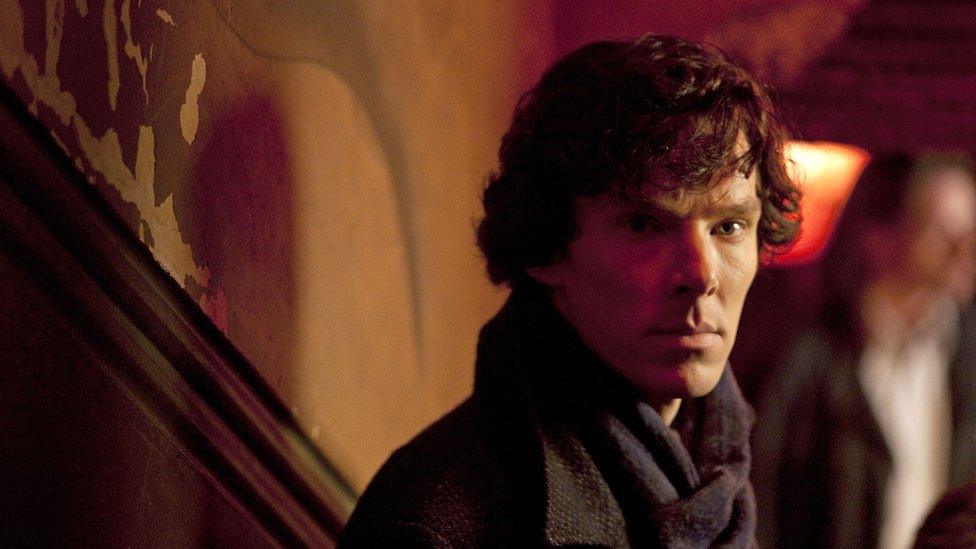
Benedict Cumberbatch felt he had to apologise for his use of language
In January Benedict Cumberbatch apologised after referring to black actors as "coloured" on a US talk show.
He was talking about diversity in UK acting when he made the comment.
Anti-racism charity Show Racism the Red Card said the term was "outdated".
Despite the majority in the survey saying "coloured" was not an offensive term, two thirds said they would never use the word when talking with friends.
Nearly half, 46%, thought the word "half-caste" was offensive.
It was a common term up until the 1980s, used by some to describe people of mixed racial backgrounds.
Just over one in seven, 13%, didn't know if the word was offensive or not.
That could be linked to the way the word is less commonly used than it once was.
Outdated
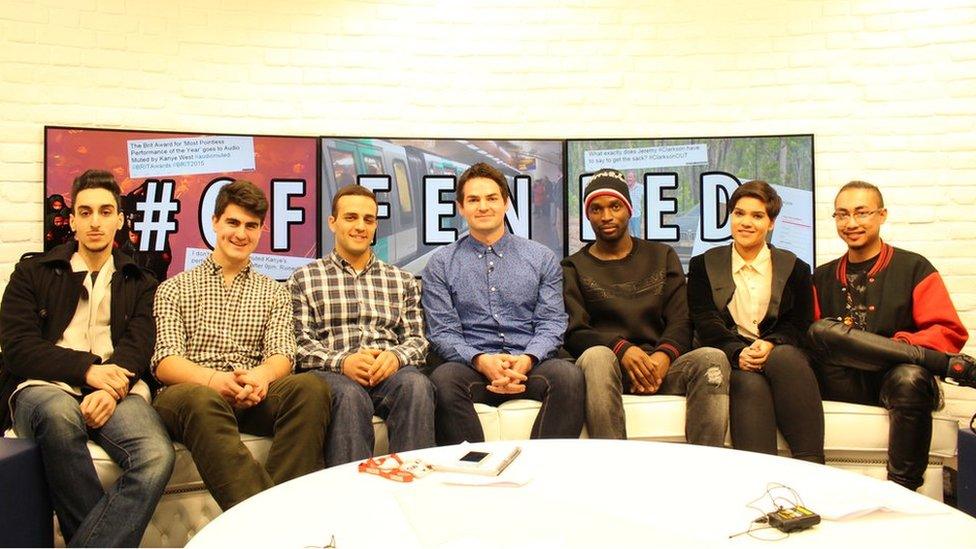
Newsbeat viewers joined Swiss from So Solid to discuss Offence and Racism
Rapper Swiss from So Solid recently released a song using the n-word as its title.
Swiss argues the aim of his song is for people to educate themselves about the use of the n-word, rather than trying to stop them using it.
He says: "People have begun to use the n-word amongst themselves as a badge of honour to deflect the stigma.
"I don't see nothing wrong with that but with the n-word it's got a bit out of hand."
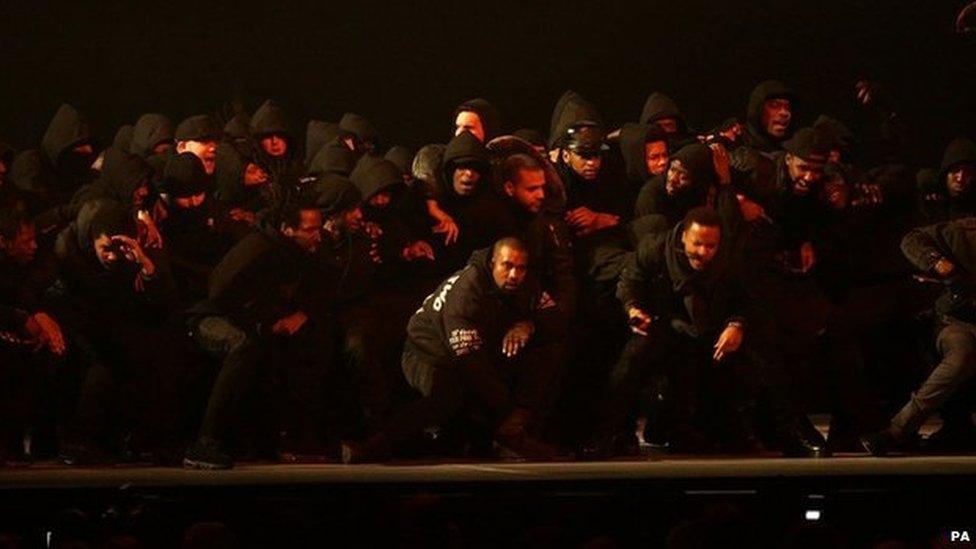
Kanye West's All Day was muted at least 13 times for TV viewers
Kanye West received complaints after using the n-word dozens of times at the Brits this year.
Although most of the language was muted by ITV, many viewers claimed that they still heard the word.
The rapper has also been known to ask fans at his gigs to sing the lyrics to his songs with n-words in them, regardless of their race.
Context
How a term is used and who says it played a big part in whether people find it offensive.
The results suggest that young people are well aware that phrases and words can be offensive, even ones some may think of as mild.
But it's clear from the 'don't knows' that many are people are still unsure what is acceptable and what is not.
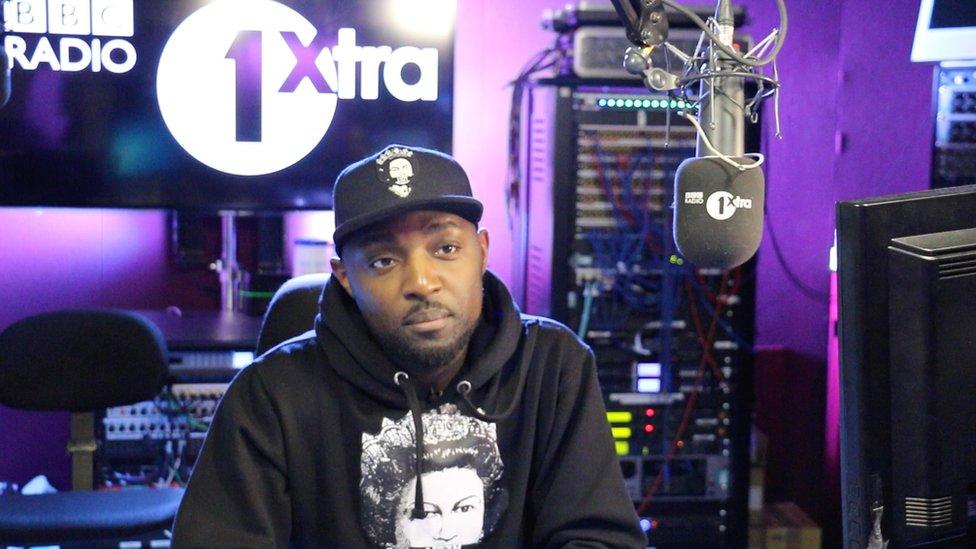
Austin Daboh, music manager at BBC Radio 1Xtra
We also asked what words were acceptable on the radio or in songs.
A quarter of young people thought it was acceptable to hear the n-word on the radio.
Austin Daboh is BBC Radio 1Xtra's music manager.
He told Newsbeat: "Language is constantly evolving, it's a matter of balance, our right to reflect the world as it is (along) with our duty to protect from harm and offence.
"We last played a record that contained the n-word unedited, at 11 o'clock at night on Semtex's show, who is our hip-hop DJ.
"On that show, at that time of night, with an audience who would expect to hear that type of language, we felt it was right, on that show, with appropriate warnings around it, to play it."
Follow @BBCNewsbeat, external on Twitter, BBCNewsbeat, external on Instagram, Radio1Newsbeat, external on YouTube and you can now follow BBC_Newsbeat on Snapchat